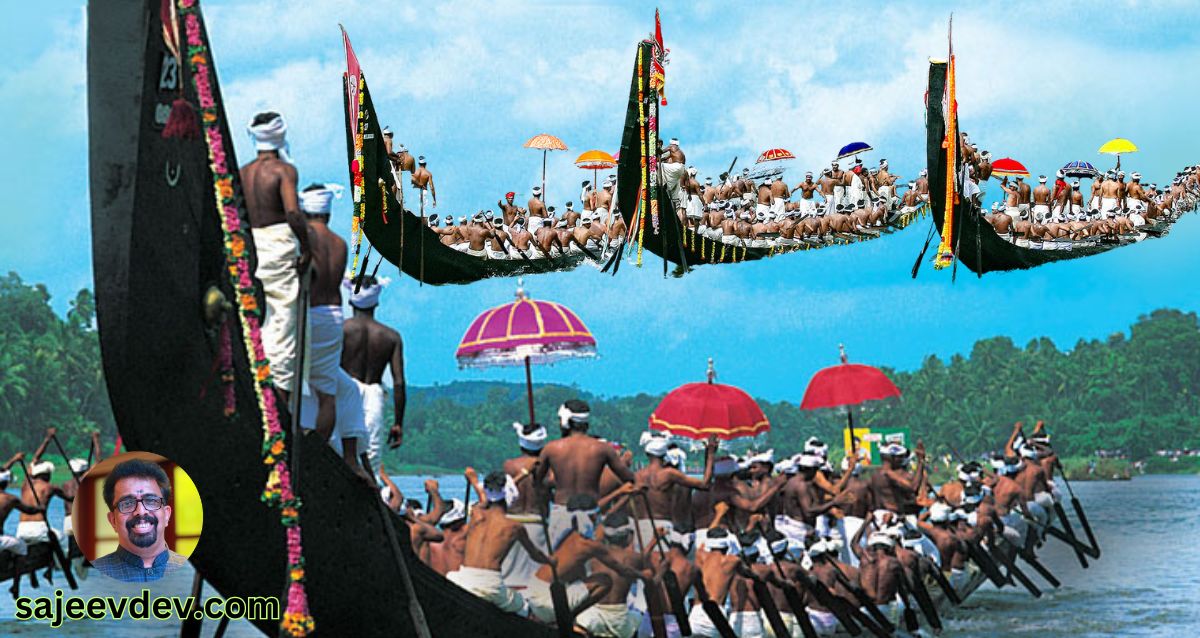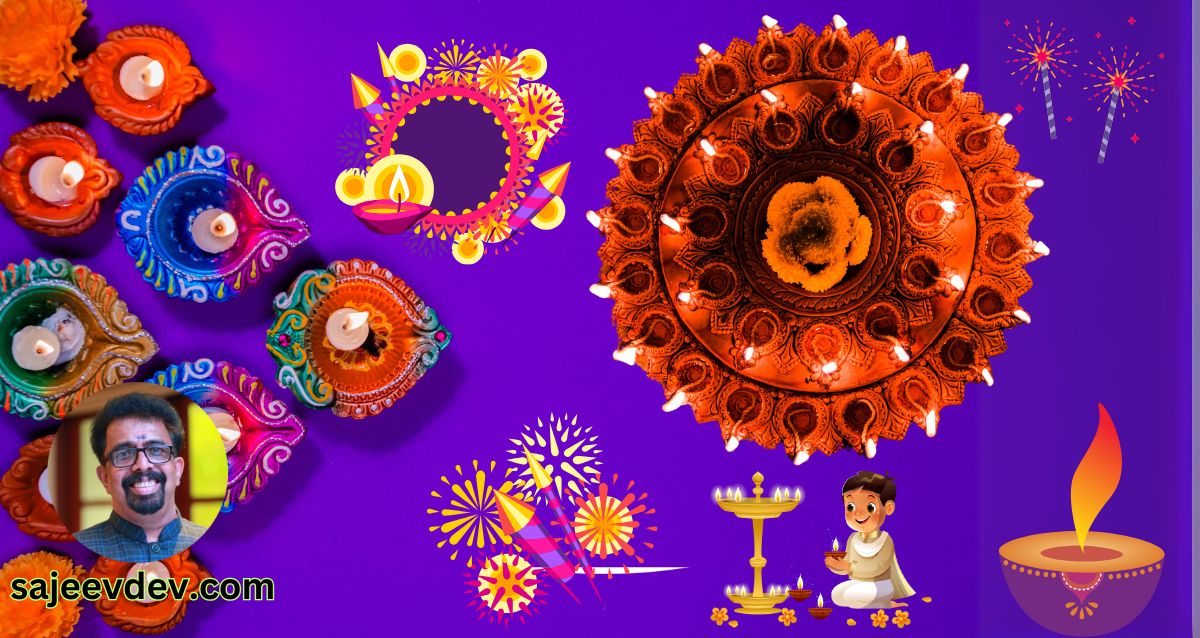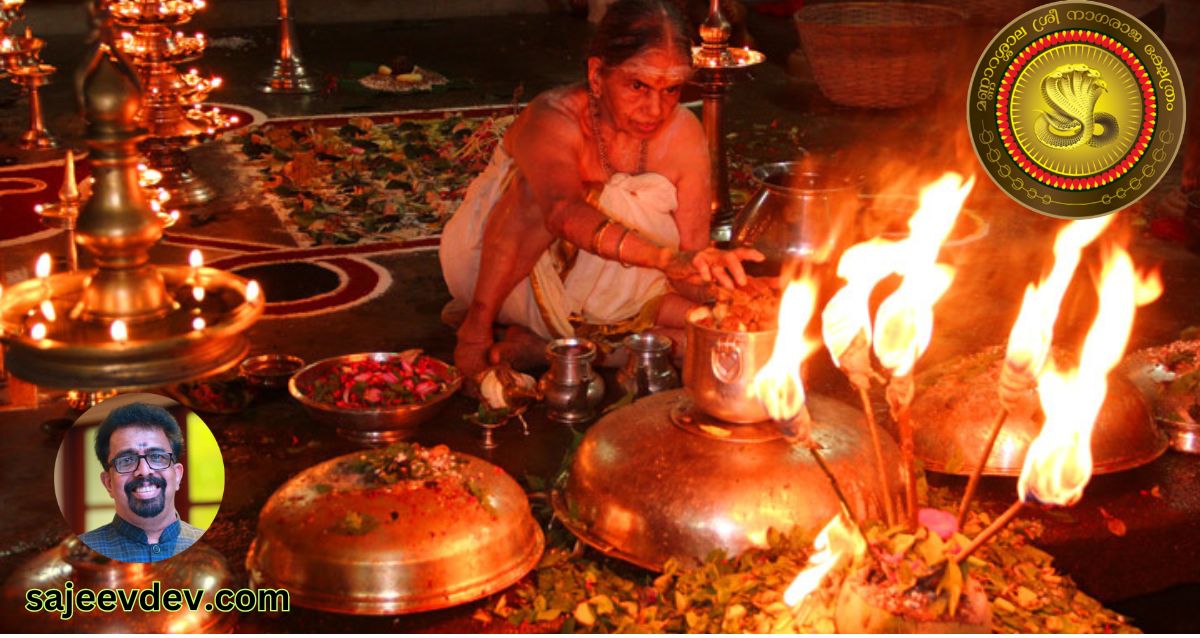Aranmula Uthrittathi Vallamkali
The Aranmula Uthrittathi Vallamkali is an esteemed and ancient boat race held annually in the picturesque village of Aranmula, situated in the state of Kerala, India. This traditional event usually takes place on the day of the Uthrittathi star in the Malayalam month of Chingam, which typically falls in August or September. The festival not only showcases remarkable boating skill but also reflects the deep-rooted cultural heritage and community spirit of the region.
In addition to the adrenaline and excitement, the Aranmula Uthrittathi Vallamkali serves to enhance the communal ties and pride among the participants and viewers alike, making it a significant landmark of Kerala’s cultural identity.
Historical Background of the Boat Race
The Aranmula Uthrittathi Vallamkali is deeply rooted in the rich tapestry of Kerala’s cultural heritage. Its origins trace back to a poignant legend involving a devout Brahmin who ardently desired to partake in the Thiruvona Sadya, a grand feast held during the Onam festival. According to the lore, this Brahmin made an earnest vow to Lord Krishna, promising to offer an elaborate feast in his honor, should his wishes be fulfilled. This dedication reflects the deep intertwining of religious devotion and cultural festivities in the lives of the locals.
However, the tale takes an unexpected turn when the Brahmin’s chances of attending the Sadya are jeopardized by unforeseen circumstances. Confronted with a dire situation, he finds himself in desperate need of assistance. It is here that the legendary snake boats, famed for their size and speed, emerge as a symbol of salvation. The swift and majestic vessels, manned by skilled oarsmen, are summoned to rescue the Brahmin and ensure he reaches the festive gathering on time. It is this dramatic unfolding of events that paved the way for the inception of the Aranmula Uthrittathi Vallamkali.
As the story progressed through generations, the boat race evolved into a cherished tradition, celebrated with fervor by the local community. The Vallamkali is not merely a display of competitive spirit; it symbolizes unity, teamwork, and the blending of sacred rituals with festive revelry. Participants and spectators alike are drawn to the river banks, creating a vibrant atmosphere that embodies the essence of Kerala’s culture. The Aranmula Uthrittathi Vallamkali remains a significant event each year, reminding the community of their storied past and the inherent values of perseverance and devotion it champions.
Cultural Significance of the Uthrittathi Festival
The Uthrittathi festival, celebrated annually in the picturesque village of Aranmula in Kerala, holds a deeper cultural significance than merely being a vibrant boat race. This festival, which occurs on the Uthrittathi star in the month of Chingam, symbolizes a profound celebration of communal harmony and unity among the local populace. Rooted in age-old traditions and rich folklore, the festival represents the collaborative spirit that defines the village’s ethos.
During the Uthrittathi festival, the air is filled with excitement and anticipation, as the rhythm of traditional music and the energy of dance permeate the atmosphere. The boat races, featuring ornately decorated snake boats, epitomize the spirited competition that underpins the festivities. However, the event transcends the confines of sport; it is a comprehensive cultural experience where rituals and customs are celebrated with zeal.
The involvement of various communities in the festival highlights the collective effort that characterizes Aranmula. From the preparation of the boats to the celebratory rituals conducted at the Parthasarathy Temple, every aspect of the festival fosters a sense of belonging and togetherness among the villagers. The rituals include a blend of offerings and prayers, aimed at invoking blessings for the participation and success of each team in the races.
Moreover, the Uthrittathi festival also plays a significant role in preserving the rich traditions of Kerala’s riverine culture. Art forms like ‘Thiruvathira’ dance and ‘Panchavadya’ music, displayed during the festivities, serve as a medium for cultural expression and education for the younger generation. Through this amalgamation of rituals and celebrations, the festival not only strengthens community bonds but also reinforces the cultural identity of Aranmula, making it a landmark event that reflects the enduring legacy of local traditions.
The Symbolism of Snake Boats: Palliyodams
The Palliyodams, also known as snake boats, are remarkable vessels that hold immense cultural and symbolic significance in the context of the Aranmula Uthrittathi Vallamkali. These elongated boats, characterized by their serpentine shape, are traditionally constructed from local timber, often using the wood of the jackfruit tree. Their design not only reflects aesthetic ingenuity but also embodies the harmonious connection between nature and human craftsmanship. Crafted meticulously, these boats can accommodate up to 100 rowers, highlighting a blend of community unity and strength.
Historically, the Palliyodams are deeply intertwined with the worship of Lord Krishna, a manifestation of the divine in the form of a child who symbolizes playfulness and mischief. This connection is palpable during the festive season of Vallamkali, where the boats, adorned with vibrant decorations and accompanied by rhythmic chants, take to the waters in a grand display of devotion. The racing of the Palliyodams is more than mere competition; it is a ritualistic homage that honors the local deities and signifies the well-being of the community. Beyond their use in boat races, these vessels have evolved into symbols of camaraderie, pride, and resilience among the local populace.
The identity of the region has been shaped significantly by the presence of these boats. The skill required to handle a Palliyodam fosters a sense of belonging and cooperation among participants. Families and friends come together, practicing for the races and celebrating victories as a collective. The transformation of these vessels into a community emblem reinforces the role of Palliyodams not only as instruments of sport but also as vital markers of Kerala’s rich cultural heritage.
In conclusion, the Palliyodams serve as intricate representations of both artistry and spirituality, encapsulating the essence of Kerala’s ancient boating traditions.
The Venues and Spectacle of the Event
The Aranmula Uthrittathi Vallamkali is prominently set against the backdrop of the scenic River Pamba, a prominent waterway in Kerala, known for its rich cultural heritage and stunning landscapes. The river, adorned with lush greenery and vibrant local flora, offers a captivating view that enhances the overall experience of this ancient boat race. The natural beauty surrounding the river not only enriches the aesthetics of the event but also acts as a tranquil setting for both participants and spectators.
The event itself is a grand spectacle, drawing large crowds who gather along the banks of River Pamba to witness the exhilarating competition. The organization of the event is meticulously planned, ensuring that spectators enjoy an unobstructed view of the boats racing through the waters. Temporary viewing platforms are erected to accommodate visitors, and various arrangements are made to ensure their comfort. Amenities such as food stalls, rest areas, and information booths are strategically placed along the riverbanks to enhance the overall experience.
The atmosphere during the Vallamkali is electric, filled with excitement and fervor. Traditional music, vibrant decorations, and enthusiastic cheers from the crowd create an ambiance that is both festive and culturally enriching. The participation of teams from the local community adds to the sense of pride and unity, showcasing the long-standing tradition of boat racing in Kerala. The combination of the scenic venue and the lively atmosphere makes the Aranmula Uthrittathi Vallamkali not just a race but a celebration of heritage and community spirit, captivating the hearts of all who attend.
Preparation and Participation of Teams
The Aranmula Uthrittathi Vallamkali is not merely a race; it is emblematic of the intense preparation and dedication demonstrated by each participating team. The process begins months in advance, during which teams engage in rigorous training regimes designed to enhance both the physical strength and coordination of the rowers. Everyday routines involve early morning practices on the backwaters of Kerala, where team members hone their synchronized paddling techniques. These training sessions are crucial, as they aim to build stamina, improve timing, and foster team dynamics, all of which are essential for success in this competitive event.
In addition to physical training, cultural practices play a vital role in the preparation. Teams often adorn their boats with traditional decorations and conduct rituals to invoke blessings from deities, ensuring an auspicious start to the racing season. This blend of sportsmanship and cultural reverence reflects the deep-rooted traditions that encapsulate the Vallamkali. Celebrations are marked by community gatherings where team members engage with locals, emphasizing the integrative nature of this event that empowers local identities and reinforces communal bonds.
The sense of community surrounding the Aranmula Uthrittathi Vallamkali is palpable, as local supporters rally behind their teams with enthusiastic cheers and spirited celebrations. The competition serves to not only ignite a sense of pride among participants but also to build camaraderie and resilience within their communities. Each race transforms into a vibrant showcase of Kerala’s rich heritage, as the rhythm of paddles hitting the water synchronizes with the beats of traditional music performed by local artists. This unity between teams and spectators creates an atmosphere charged with energy, reflecting the true essence of the Vallamkali and the cultural significance it holds in Kerala.
The Race: Events and Competitions
The Aranmula Uthrittathi Vallamkali, an ancient boat race held in Kerala, showcases a rich tapestry of cultural heritage alongside thrilling athletic competitions. This event typically takes place on the day of Uthrittathi Nakshatra in the Malayalam month of Chingam, attracting participants and spectators alike. The race is meticulously organized, beginning with the ceremonial procession that includes traditional music, folk dances, and vibrant displays, which set the tone for the day’s festivities.
As the excitement builds, participants prepare their beautifully adorned snake boats known as “Vallams.” Teams from various localities gather, each boat showcasing unique colors and designs that reflect their community’s identity. Once the opening ceremonies conclude, the competition commences with a series of races. The primary event usually involves a preliminary round where multiple boats, manned by skilled oarsmen, vie for the best time. Each race is intense and is complemented by enthusiastic cheering from the audience, creating a spirited atmosphere.
In addition to the main race, various mini-competitions take place throughout the day. These may include relay races, where teams compete in shorter distances, and informal challenges that encourage participation from local youth. Such competitions serve not only as entertainment but also as an opportunity for younger generations to engage in the traditions of their forefathers.
The competitive spirit is heightened by the elements of strategy and teamwork, as each crew must work harmoniously to navigate the waters skillfully. The synchronization of strokes and collective determination transform the race into an exhilarating spectacle. Spectators, both local and tourists, are captivated by the thrilling nature of the event, as they witness the culmination of hard work, dedication, and the celebration of community spirit reflected in this age-old tradition. The Aranmula Uthrittathi Vallamkali, through its events and competitions, remains a vivid reminder of Kerala’s unique cultural heritage.
Impact on Local Economy and Tourism
The Aranmula Uthrittathi Vallamkali, an esteemed traditional boat race in Kerala, significantly influences the local economy and tourism landscape. Each year, this event draws a substantial influx of visitors, both domestic and international, eager to witness the vibrant festivities associated with this ancient cultural spectacle. The surge in tourism creates a substantial economic boost for the region, as visitors require accommodation, dining, and other services, thereby invigorating local businesses.
During the Vallamkali season, local entrepreneurs experience a rise in demand for goods and services. Small businesses such as homestays, restaurants, and souvenir shops cultivate opportunities to cater to tourists, thereby enhancing their profits and promoting entrepreneurship. Local artisans also benefit as they create traditional crafts and memorabilia that resonate with the cultural heritage highlighted during the event. Such entrepreneurial activities contribute to the diversification of the local economy, enabling residents to sustain their livelihoods year-round.
The Aranmula Uthrittathi Vallamkali is not merely a boat race; it is a vibrant manifestation of Kerala’s rich cultural heritage
The Aranmula Uthrittathi Vallamkali is not merely a boat race; it is a vibrant manifestation of Kerala’s rich cultural heritage. As communities come together to partake in this annual celebration, it reinforces their identity and connection to the past. The race serves as an essential reminder of the intricate relationship between tradition and community, ensuring that the values and stories of previous generations are passed down through the years.
Preserving such traditions is crucial for several reasons. Firstly, the Aranmula Uthrittathi Vallamkali fosters a sense of belonging among participants and spectators alike. It acts as a focal point for the community, bringing individuals together in a shared experience that transcends age and background. As younger generations are introduced to this ancient practice, they develop a deeper appreciation for their cultural roots, thus ensuring that these customs remain alive and relevant.
Efforts to maintain the Aranmula Uthrittathi Vallamkali are evident in various forms, including community initiatives, educational programs, and governmental support. Local organizations play an active role in organizing rehearsals, workshops, and festivals that highlight the significance of this traditional boat race. Such initiatives not only enhance the skills of the participants but also instill pride among the community members for their heritage.
As we look towards the future, it is essential to nurture the spirit of the Aranmula Uthrittathi Vallamkali. Through continued engagement and promotion of this age-old practice, the hope is to inspire forthcoming generations to embrace their legacy wholeheartedly. By investing in the preservation of this remarkable cultural event, we ensure that the essence of Kerala’s ancient traditions endures, fostering a strong sense of identity and continuity in the community.



